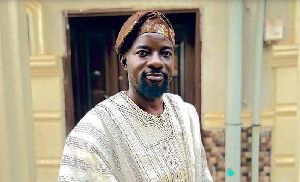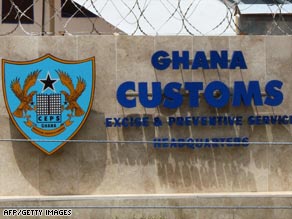Accra, Jan. 9, GNA-Dr. Osei Darkwa, Principal of the Ghana Telecom University College, on Tuesday opened a new chapter to increase accessibility to tertiary education in Ghana, calling for an immediate establishment of an "Open University."
The National Open University of Ghana (NOUG) would use a mix of technologies ranging from face to face, print, audio, video, and web based to deliver lectures to students who may be scattered all over the country. Speaking at the 59th Annual New Year School, an extra mural programme organised by the Institute of Adult Education of the University of Ghana, Legon, Dr Darkwa expressed concern about the numerous problems that restricted admissions into the traditional universities. He underscored the need for a bold decision to create the NOUG that uses the ICT to connect Ghanaians who may be everywhere to teachers, students and the tools for learning.
Currently, the present traditional universities could accommodate only 30 per cent of all qualified applicants, and those from villages who want to learn must leave their communities and go to the cities, since small villages do not have access to tertiary institutions. According to Dr. Darkwa, the Anamoah Mensah Report on the New Educational Reforms, made a strong recommendation for the establishment of the Ghana Open University which President John Agyekum Kufuor, in a complimentary comment had endorsed.
In numerical terms, the proposed Open University of Ghana can be a mega-university enrolling over 100,000 students, its capacity limited only by the instructional capability of Ghana.
"The money that we do not spend on brick and mortar, Ghana can use on improving and expanding its Internet infrastructure, so that the students anywhere in our nation can come to a computer in a church, a mosque, a temple, a store, a caf=E9 and have available to them rich educational resources. "Their professors can be the best of Ghana's intellectuals, and the best minds of MIT, and the British Open University, and the hundreds of universities around the world that are now available to us via the smart machine," Dr Darkwa said.
Mr. Emmanuel Owusu-Oware, Head of the ICT Directorate of the University of Ghana, Legon, observed that institutions that treat ICT as top-most priority are those that are likely to have increased use of ICT, and increasing ICT in tertiary education requires strong ICT leadership at both the national and institutional level. "Strong ICT leadership ensures that ICT is recognised as treated as priority," he said.
ICT leadership is a high level decision making body composed of senior executives in the institution who decide on ICT priorities and policy issues. Such a body is significant to bring about institutional consensus and support for ICT policies and priorities, harmonise ICT developments and help to bridge the gap among technologists, scholars and educators.
Mr. Owusu-Oware called for strong ICT leadership, where ICT is treated as priority at both national and institutional levels and paradigm shift in the teaching and learning from instructor led to student based so as to facilitate the effective use of ICT.
Ms. Dorothy Gordon, Director General of Kofi Annan Centre of Excellence in ICT, called for a prompt action for collaborative work to buy bandwidth, as first step to increased student access to computing resources.
General News of Wednesday, 9 January 2008
Source: GNA
It is time Ghana establishes Open University
Entertainment











